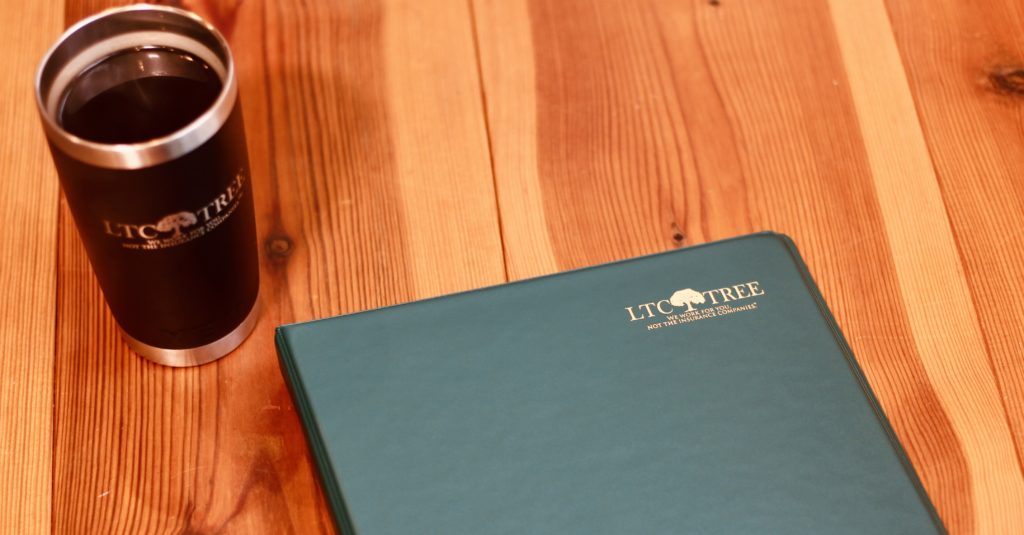Hybrid Long-Term Care Insurance melds the features of traditional long-term care insurance (LTCI) with those of life insurance. These plans cover a spectrum of care needs, including home health care, assisted living, adult day care, and nursing homes paid to you in cash. However, what if long-term care isn’t needed? If so, the policy will pay a life insurance benefit to the family upon the policyholder’s death. This benefit is guaranteed to be at least equivalent to the premiums paid, if not more.
A Fast Growing Trend
Hybrid long term care insurance plans have been around for about 15 years. Over the past five year there has been a huge uptick in hybrid LTCI sales with hybrid products making up only 5% of all LTCI sales in 2008 to over 60% of all LTCI sales today.
Frank Meyers has sold traditional long term care insurance in all 50 states since 1998. He and his his firm has his finger on the pulse of “what’s next” and has predicted the rise of hybrid LTCI. Meyers who is the founder of a the nation’s number one Hybrid LTC brokerage site states:
“In the past 24 months we have seen a 420% increase in buyers of hybrid long-term-care insurance. Buyers are opting for hybrid LTC insurance plans in the place of traditional plans 3/1 last year. They are also choosing hybrid plans for the premium stability of the hybrid plans and
tax free death benefit.”
Hybrid Long Term Care plans have two huge advantage over traditional plans:
- These Hybrid Long Term Care Insurance plans offer a guaranteed premium that can never be increased.
- A Hybrid Long Term Care Plans will give the client their money back with interest at death if care is never needed.
These two facts have been the driving force behind the huge uptick in hybrid LTCI sales.
What are my options?
Currently, there are two long-term-care options:
- a traditional policy covering only long-term care with NO cash value,
- or a hybrid long term care insurance plan, which typically combines a long-term-care policy with a tax-free life-insurance policy. Learn more about the tax deductibility of Hybrid LTC.
CDC research shows that around 72% of individuals age 65 and older will need some form of long-term care before they die. Medicaid is available to help the poor who have no assets. Medicare will only pay for nursing home care 100 days. Medicare does not cover assisted living or home health care.
Which is right for you?
Choosing between a hybrid long term care insurance plan or a traditional long term care insurance policy will largely depend on your net worth. As a rule, people in their 50’s to mid 60’s will need to put in around $70,000 to $150,000 per person into a hybrid plan to have LTCI benefits similar to a traditional LTC plan. The Hybrid LTC companies will allow you to pay a single premium or pay it over ten years. No further premiums are due, ever.
How do I decide what’s right for me?
When deciding what type of LTCI product you should choose, think about an economic 101 term called opportunity cost. Opportunity cost refers to what a person is giving up in a given situation as compared to the benefit they are choosing.
In this case, the opportunity cost of a hybrid long term care plan is the future potential interest earned on the premium paid in. The key is you have to weigh what kind of future interest you could make if you kept control of that lump sum. You weigh this decision vs. the tax-free death benefit your family would receive if care is never needed. Premium stability as mentioned earlier, this is another key advantage of hybrid long term care insurance plans. Once you make your premium your hybrid plan is paid off and no further premium is ever due.
Long term care insurance hybrids can also make sense for people with current annuities or life insurance cash value. It is possible to transfer money from those plans tax-free into a hybrid LTCI plan through a IRS 1035 exchange.
Above all the other benefit of hybrid LTC plans, hybrid plan are easier to qualify for. Hybrid LTCI will take on cases where the client may have a few more health issues. Traditional long term care insurance companies often would decline these types of cases.
What are the Best Hybrid Long Term Care Insurance plans?
I’m ready to get some information, what’s next?
In short, if you would like to receive a side-by-side Hybrid Long Term Care Insurance linked-benefit comparison from the top ten blue-chip companies, click the link below. You will then receive comparisons from companies such as Lincoln MoneyGuard II, State Life Asset Care, John Hancock, Mass Mutual, New York Life, Bright House Financial, Pacific Life Premier Care Advantage, Minesota Life-Securian SecureCare, Nationwide and more. Clink the link below and get started right now.


